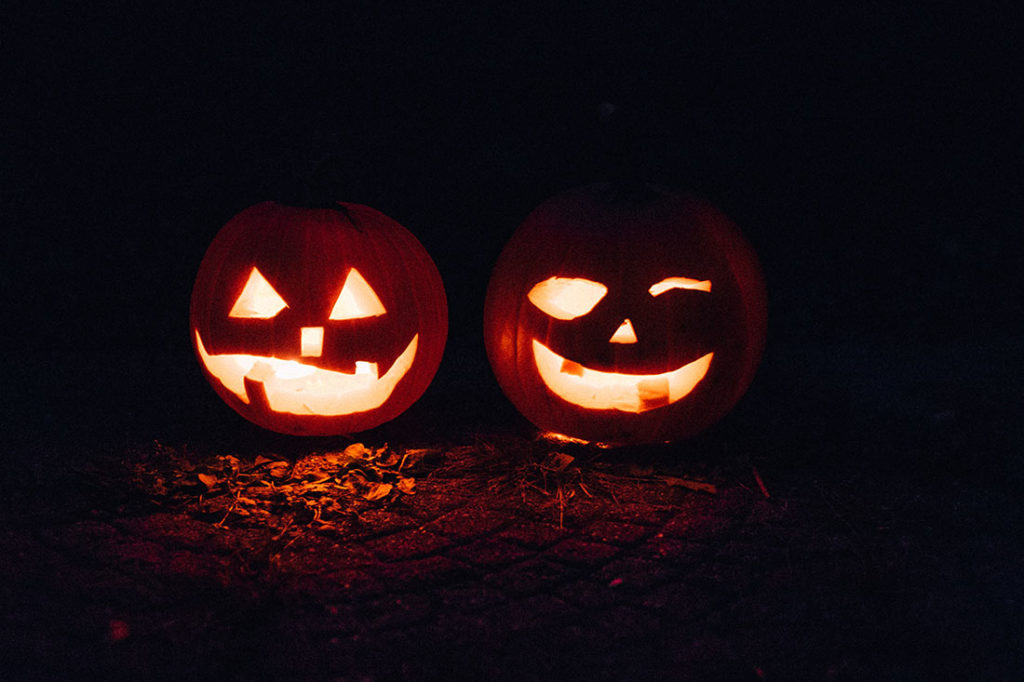I didn’t want to write this article.
Normally I pitch the stories I want to write. This time, my editor asked me if I want to write an article on tradition. “Sure,” I said, secretly feeling like a criminal lawyer defending arsonists.
I sat down to write thinking tradition was good for nothing, something clung to only by seniors who don’t own a computer.
Then I started digging.
Halloween’s 2,000-Year-Older Brother
Why do we hang onto traditions that have lost their original purpose? Since it’s that time of year, let’s pick on Halloween.
The Celts were people who lived 2,000 years ago in the area that’s now Ireland, the U.K. and northern France. Back then, in the cold of the Northern Hemisphere, when winter was tightening its grip, the Celts were starting to get uneasy. The days and the shadows were getting longer, food was scarce and earning a first-grade-level education was a big accomplishment.
Who could blame them for believing that on Oct. 31, the day of Samhain (pronounced: sow-in), the line between the worlds of the living and dead blurred and ghosts roamed the earth for one last chance to exact vengeance on their mortal enemies?
To confuse and/or appease these malevolent spirits, people wore animal masks as disguises, lit bonfires to help guide the spirits back to the otherworld and left treats outside as distraction. Sound familiar?
Today, Halloween is more about finally getting your girlfriend into that Wonder Woman outfit than outmaneuvering poltergeists, but we’ve stuck to our Samhain Halloween traditions two millennia later. Why?
Why do we celebrate a holiday that has nothing to do with its origins?
Spooky Traditions
The obvious answer is that Halloween is fun, whether you’re 6 and showing off your dinosaur costume, 25, chugging beer out of a hollowed out pumpkin, or 40, uploading Instagram photos of your 6-year-old rolling around in a mountain of free candy.
But what about those not-so-adorable traditions?
What about fraternity hazing, antiquated corporate cultures or your Friday night trip to the burger drive-thru? Some traditions are obviously hurting us, but we keep them alive.
Our most traditional family members tend to be the ones who keep buying us socks for Christmas, constantly talk about that good-for-nothing ex-husband who left 10 years ago, and who couldn’t possibly travel outside of the county.
Tradition’s dark side is mindless repetition of an activity when it’s long since lost its utility. It’s best to exorcise those demons.
Related: Why Do You Do What You Do?
And the lighter side?
A one-sided attack on tradition would miss half the story. I wanted to write an article assailing tradition, but the research wouldn’t let me. Once again, neuroscience has saved me (and you) from a curmudgeonly rant.
In their tradition of studying everything you can possibly imagine, scientists have studied tradition. Extensively.
Besides the obvious benefits of providing stability and grounding in children’s lives, of teaching values, strengthening family bonds and passing on wisdom, research has focused on tradition’s role in generating nostalgia.
When I think back on my brother in his devil costume and me in my Roman soldier getup, heading out with our plastic pumpkins to trick-or-treat, it makes me smile.
Studies published by the American Psychological Association shows that nostalgia “was positively associated with a sense of meaning in life,” and that it boosts our psychological well-being.
Researchers at the Universities of Southampton and Missouri have conducted studies that show “nostalgia bolsters social bonds, increases positive self-regard [and] gives rise to thought patterns that are flexible, creative, integrative and efficient.”
That definitely doesn’t sound like the caricature of stuffy old Aunt Millie.
On cold days, nostalgia can literally make us feel warmer, an evolutionary advantage for our ancestors out in the snow looking for food.
Traditional Evolution
OK, so traditions can be positive as long as they continue to provide value. When that’s no longer the case, it’s time for those traditions to evolve.
Related: Do Your Actions Reflect Your Values?
Sometime around the year 700, Christianity was making inroads into Celtic territory. Naturally, Pope Gregory III wasn’t too keen to let church followers run around wearing goats’ heads, playing hide and seek with the dead. That just wouldn’t do.
His solution? He moved All Saints Day to Nov. 1 and incorporated some of the Samhain traditions, helping it evolve from a day where the dead visited the living and the Druids divined your fortune, into All Hallows’ Eve (later, Halloween), a celebration of the glorious dead in Heaven, and a church-sanctioned day for donning angel and devil costumes.
The tradition evolved, and Western civilization was saved from impending collapse (slight exaggeration here).
Fast-forward to colonial times, when doing anything enjoyable was frowned upon by our puritanical forebears. The celebration evolved itself out of fashion, until a wave of Irish and Scottish immigration in the 1800s revived Halloween traditions.
Today, Halloween has all but lost its religious connotations, but we continue to keep the tradition alive. Why? Because it’s fun, like I said. Weren’t you listening?
Fun Fact: One quarter of all the candy sold annually in the U.S. is purchased for Halloween.
Are you a closet traditionalist?
I came to this article thinking anyone who identified as traditional is probably someone who also enjoys church organ music.
As a rule, I try to examine my behavior constantly, so that I’m not doing things just because that’s the way they’ve always been done.
But when I look back at my happiest memories, many of them come from a time when I was practicing traditions. Goth Halloween with Claire and Eric, circa 2006. Binge-watching Christmas shows with my brother on the family room carpet when we were home from university. Yearly camping trips to The Pinery with the boys from high school. Even the scones I had this Saturday morning are a tradition.
These rituals are a powerful source of joy in my life. So long as I continue to question their usefulness, I suppose this tradition thing isn’t so bad after all.
Related: 8 Little Habits That Will Instantly Make You Happier
Photo by Beth Teutschmann on Unsplash






